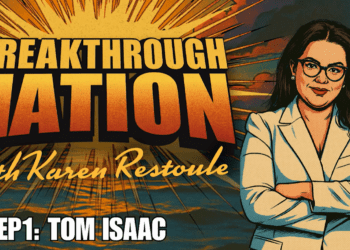Writing in the Ottawa Citizen, MLI Senior Fellow Philip Cross argues that time has proven Prime Minister Stephen Harper correct in his decision to cut the GST.
In 2006, Harper announced plans to reduce the GST from seven per cent to five per cent. Cross says this has helped assure “a good marriage of politics and economics” by making an efficient tax more acceptable to voters.
By Philip Cross, July 24, 2014
Was cutting the GST anti-scientific?
In accusing the Harper government of waging a “war on science,” proponents are always quick to cite reductions to the GST rate because of its “scientific” design. Since it exempts sectors such as business investment and exports that we want to grow rapidly, almost all economists agree it is more efficient than the manufacturing sales tax it replaced, which penalized these goods. The downside is the higher tax burden on consumers, which is politically poisonous. So did cutting the GST by two percentage points betray an irrational and anti-scientific mindset in this government?
Think back to the history and not the science of the Goods and Services Tax. After its introduction on January 1, 1991 by the Mulroney government to a country already reeling from recession, the resulting jump in consumer inflation to seven per cent sent the economy nose-diving and unemployment to 12 per cent. As a result, the Progressive Conservative party was decimated in the 1993 election, holding on to only two seats, while the Chrétien Liberals won partly on a promise to abolish the wildly unpopular GST.
Of course, once in power the Liberals reneged on their promise and kept the GST, partly out of the need for its tax revenue as they battled to slay the deficit dragon in the mid-1990s and partly because most provinces refused to harmonize with the GST (three Atlantic provinces agreed to a Harmonized Sales Tax, joining Quebec in adopting the “scientific” structure of the GST). The broken promise of ending the GST was taken so seriously that Sheila Copps felt obliged to resign from cabinet and seek re-election.
Resistance to the GST remained fierce, reflected in the growth of the underground economy as Canadians used tax avoidance as well as the ballot box to express their discontent.
The reborn Conservative party won in 2006 under Stephen Harper, pledging to cut the GST in two steps from seven per cent to five per cent. Despite pleas from economists, they kept that promise. The federal government’s strategy followed Burke’s maxim that “Politics ought to be adjusted not to human reasonings but to human nature.” Concerning the GST, the human nature of Canadians repeatedly elected governments that promised to abolish or reduce the GST, no matter what economists reasoned.
The Harper government never contradicted or questioned that the GST is better than sales taxes. However, the exact GST rate is debatable because the rate doesn’t affect its best feature, which is the exemption for investment and exports. By lowering the rate, the government made the GST more palatable to Canadians and reduced tax evasion.
Furthermore, the federal government was rational enough to keep pushing other provinces to follow Quebec and the Atlantic provinces in replacing their antiquated sales taxes with a Harmonized Sales Tax. By 2009, both Ontario and B.C. were impoverished enough by the recession to be lured by the promise of billions from the federal government to risk adopting an unpopular tax. Ontario’s move was not contested in the 2011 election, a measure of how desperately it needed funds. PEI also converted to the HST.
The British Columbia government acted to adopt the HST in 2010, but a referendum in 2011 rescinded this move. The referendum vote was a reminder of how politically unpopular the tax potentially remains with the public two decades after its introduction, however much economists are enamoured with its design.
This is not surprising, since the GST visibly shifts the tax burden from investment and exports to consumers. Another factor in B.C.’s rejection of the HST was that Premier Gordon Campbell had imposed it without campaigning on it. The rejection of the HST in B.C. might well be worth the economic cost, if this vote helped defang the hostility to the incumbent Liberal government, now led by Christy Clark after replacing the discredited Campbell, and avoid the election of the NDP last year.
Curiously, one rarely hears pundits castigate the B.C. electorate as “anti-science” after it chose to replace the HST with the antiquated retail sales tax.
So why is cutting the GST being grafted onto the narrative that the Harper government is “anti-science”? Lowering the GST is just a good marriage of politics and economics. By reducing the GST’s rate and reconciling most Canadians with its existence, even extending its reach into the structure of more provincial taxes, this government has ensured the survival of an unpopular but efficient tax. How is that anti-scientific? Or does keeping promises qualify politicians in today’s world as hopelessly irrational?
Philip Cross is a Research Fellow with the Macdonald-Laurier Institute and the former Chief Economic Analyst at Statistics Canada.




